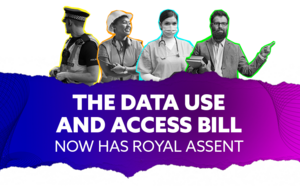
- Insights & News
- Contact
- 0117 9717547
How the DUAA Act impacts you
The Data (Use & Access) Act 2025 (DUAA) introduces significant changes to the UK’s data protection framework bringing both opportunities and new compliance requirements for membership organisations.



Simplified Direct Marketing Rules
Direct marketing, like sending newsletters, is now a “legitimate interest” under the UK GDPR, with a balancing test required. You benefit from relaxed “soft opt-in” rules, allowing electronic marketing to members without explicit consent, provided an opt-out is included.
What it means for you: Update marketing policies, ensure clear opt-outs, and comply with PECR to avoid fines.
Cookies Without Consent
Cookies for analytics and content optimisation can be used without consent in low-risk cases, if an opt-out is provided.
What it means for you: Update website cookie banners to include opt-outs and revise cookie policies.
Data Subject Access Requests (DSARs)
A “stop the clock” rule pauses the one-month DSAR response deadline if clarification is needed. Searches must be “reasonable and proportionate.”
What it means for you: Update DSAR procedures to use the new rule and align searches with the standard.
Mandatory Complaints Process
Organisations must have a formal data protection complaints process, including an electronic form, with complaints acknowledged within 30 days.
What it means for you: Set up an online complaints form and train staff to respond promptly.
Stronger ICO Enforcement
The ICO gains powers to compel interviews, request reports, and issue fines up to £17.5m or 4% of turnover under PECR.
What it means for you: Prioritise compliance, especially for marketing and cookies, to avoid penalties.
